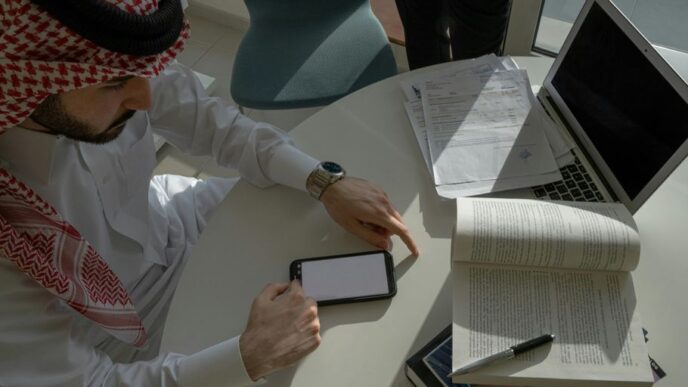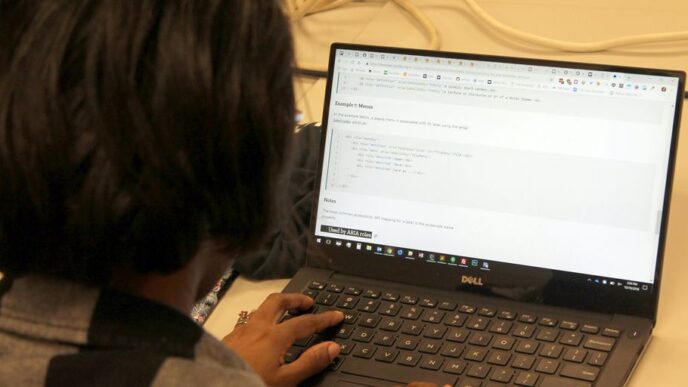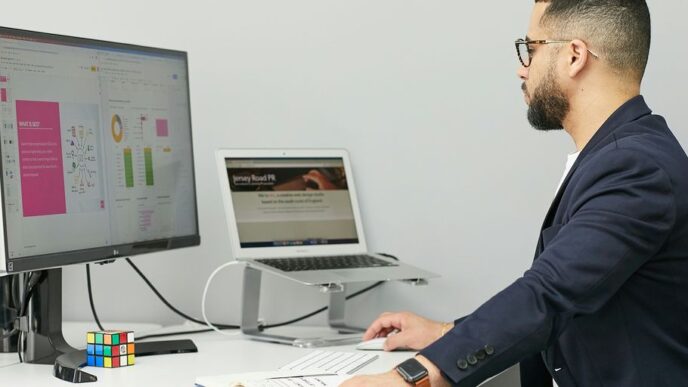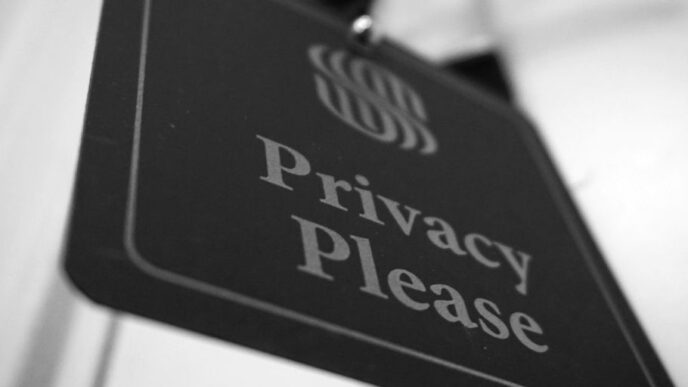Building strong connections with others is super important for a happy life. It’s not always easy, but putting in the work to understand and support each other really pays off. This article is all about how to make those connections stronger, with some great building a relationship quotes to get you thinking.
Key Takeaways
- Trust and respect are like the glue that holds any good connection together.
- Talking openly and honestly helps people understand each other better.
- Being there for each other, through good times and bad, makes bonds stronger.
- Taking time and putting in effort helps relationships grow over time.
- Real connections bring a lot of happiness and can even help you change for the better.
The Foundation of Strong Connections
Building Trust and Respect
Trust and respect are the cornerstones of any solid relationship. Without them, it’s like building a house on sand – eventually, it’s going to crumble. Trust means believing in someone’s reliability and integrity, while respect involves valuing their opinions, feelings, and boundaries. It’s a two-way street; both parties need to actively cultivate these qualities. Think about it: would you share your deepest fears with someone you don’t trust? Or would you listen to advice from someone you don’t respect? Probably not. Building healthy relationships starts here, with a conscious effort to be trustworthy and respectful in all your interactions.
The Power of Open Communication
Communication isn’t just about talking; it’s about truly listening and understanding. It’s about expressing your thoughts and feelings clearly and honestly, even when it’s difficult. It’s also about creating a safe space where the other person feels comfortable sharing their perspective without fear of judgment. I’ve found that sometimes, the most important conversations are the ones where you just listen, without interrupting or offering solutions. Here are some tips for better communication:
- Actively listen to what the other person is saying.
- Ask clarifying questions to ensure you understand their point of view.
- Express your own thoughts and feelings in a clear and respectful manner.
- Avoid making assumptions or jumping to conclusions.
Nurturing Mutual Support
Relationships are about being there for each other, through thick and thin. It’s about offering a shoulder to cry on, celebrating each other’s successes, and providing encouragement during tough times. Mutual support means knowing that you’re not alone, that someone has your back. It’s about creating a partnership where both individuals feel valued and supported. I remember when I was struggling with a project at work, my friend Sarah was there every step of the way, offering advice and encouragement. That’s what positive influence looks like, and it made all the difference. It’s not always about grand gestures; sometimes, it’s the small acts of kindness and support that matter the most.
Cultivating Lasting Bonds

Embracing Vulnerability
It’s easy to put up walls, right? But lasting bonds? They need something more. Being vulnerable is like opening the door and saying, ‘Hey, this is me, flaws and all.’ It’s scary, no doubt. But it’s also the only way to truly connect. Think about it: you can’t really know someone if they’re always hiding behind a perfect facade. And they can’t know you. It’s a two-way street. It’s about showing your true self, even when it’s not pretty. It’s about trusting someone enough to let them see your imperfections. It’s about being real. And that’s where the magic happens. It’s how you build something that lasts. It’s how you find significant life improvements.
Growing Through Shared Experiences
Life’s not a solo act. It’s a messy, beautiful, chaotic ensemble performance. And the best relationships? They’re the ones where you’re sharing the stage. Think about the times you’ve really bonded with someone. Was it just sitting around talking? Probably not. It was probably doing something together. Maybe it was traveling, working on a project, or even just surviving a really bad day. Those shared experiences, the good and the bad, they’re the glue that holds relationships together. They give you stories to tell, inside jokes to share, and a deeper understanding of each other. It’s like, you went through something together, and now you’re connected in a way that no one else can understand.
Celebrating Individual Strengths
Relationships aren’t about becoming one person. They’re about two people coming together, each with their own unique strengths and weaknesses, and creating something even better. It’s about recognizing and celebrating what makes each person special. Maybe one person is great at planning, and the other is amazing at improvising. Instead of trying to change each other, you use those strengths to complement each other. You build each other up. You support each other’s dreams. You create a space where each person can shine. It’s not about being perfect; it’s about being perfectly you, together. It’s about understanding each other’s needs and supporting each other’s goals.
The Art of Relationship Building
Practicing Empathy and Understanding
It’s easy to get caught up in our own perspectives, but relationships really thrive when we make a conscious effort to see things from the other person’s point of view. Empathy isn’t just about feeling sorry for someone; it’s about genuinely trying to understand their thoughts, feelings, and experiences. This means actively listening, asking questions, and putting yourself in their shoes. It’s a skill that takes practice, but the payoff in terms of stronger connections is huge. It’s like, imagine your friend is super stressed about a work project. Instead of just saying, "Oh, it’ll be fine," try asking them about the specific challenges they’re facing and really listening to their concerns. That simple act of empathy can make a world of difference.
Forging Deeper Connections
Superficial interactions are fine for small talk, but if you want real, lasting bonds, you’ve got to go deeper. This means being willing to share your own thoughts and feelings, and creating space for others to do the same. It’s about moving beyond surface-level conversations and exploring what truly matters to each other. Here are some ways to boost likes and engagement on a deeper level:
- Share personal stories: Talk about your experiences, both good and bad.
- Ask meaningful questions: Go beyond the usual "How was your day?" and ask about their dreams, fears, and passions.
- Be vulnerable: Don’t be afraid to show your true self, flaws and all.
Investing Time and Effort
Relationships aren’t something you can just set and forget. They require ongoing investment of time and effort. Think of it like a garden – if you don’t water it, weed it, and give it attention, it’s not going to flourish. This means making time for the people who matter to you, even when you’re busy. It means being present when you’re with them, and showing them that you care. It’s about prioritizing your relationships and making them a regular part of your life. It could be as simple as scheduling a weekly phone call with a friend, or planning a monthly date night with your partner. The key is to be consistent and intentional in your efforts.
Sustaining Healthy Relationships
Navigating Challenges Together
Life throws curveballs, and relationships aren’t immune. It’s not about avoiding problems, but how you handle them. Think of challenges as opportunities to strengthen your bond.
- Acknowledge the issue: Don’t sweep things under the rug. Talk about it.
- Find common ground: Look for solutions that work for both of you.
- Seek help if needed: There’s no shame in getting advice from a therapist or counselor. Sometimes you need an outside perspective to see things clearly. If you are experiencing relationship-issues, consider seeking professional help.
Prioritizing Kindness and Affection
Life gets busy, and it’s easy to let the little things slide. But those little things – a hug, a kind word, a thoughtful gesture – are what keep the spark alive.
- Make time for each other: Even if it’s just 15 minutes a day, dedicate that time to connecting.
- Show appreciation: Tell your partner what you appreciate about them. Don’t assume they know.
- Practice active listening: Really listen when your partner is talking, without interrupting or judging.
Maintaining Personal Growth
A healthy relationship isn’t about losing yourself in the other person. It’s about growing together while still maintaining your individuality.
- Pursue your own interests: Have hobbies and passions outside of the relationship.
- Support each other’s goals: Encourage your partner to pursue their dreams.
- Communicate your needs: Be honest about what you need to feel fulfilled, both inside and outside the relationship. It can help you better understand your emotions and to communicate more effectively with others.
The Transformative Power of Connection
Connection, at its core, is about more than just being around people. It’s about how we affect each other, how we grow together, and the strength we find in shared experiences. It’s about the ripple effect our relationships have on our lives and the world around us. It’s about the joy, the support, and the change that comes from truly being connected.
Finding Joy in Shared Journeys
Think about the last time you laughed so hard your stomach hurt, or accomplished something amazing with a team. Those moments are amplified by the people you share them with. It’s not just about the event itself, but the shared experience that creates a lasting memory. Shared experiences can be as simple as watching a sunset together or as complex as building a house for someone in need. The key is that you’re doing it together, creating a bond that strengthens over time. It’s like that saying, "A joy shared is doubled, a sorrow shared is halved."
Inspiring Positive Change
Relationships can be a powerful catalyst for personal growth and positive change. When you’re surrounded by people who believe in you, you’re more likely to take risks and pursue your dreams. They challenge you, support you, and hold you accountable. They see your potential even when you don’t see it yourself. This kind of support can be life-changing, pushing you to become a better version of yourself. Plus, being part of a supportive network can inspire you to practice empathy and extend that positive influence to others.
Creating a Supportive Network
A supportive network is like a safety net, always there to catch you when you fall. It’s a group of people who have your back, who offer encouragement and understanding, and who celebrate your successes. Building this kind of network takes time and effort, but it’s worth it. Here’s how to start:
- Be present: Show up for the people in your life, both physically and emotionally.
- Offer support: Be willing to lend a helping hand or a listening ear.
- Communicate openly: Share your thoughts and feelings honestly and respectfully.
Having a strong support system can make all the difference in navigating life’s challenges. It’s a reminder that you’re not alone and that there are people who care about you and want to see you succeed.
Wisdom for Building a Relationship
Insights on Reciprocity
Relationships are a two-way street, plain and simple. It’s not just about what you can get, but what you’re willing to give. Reciprocity means that both people are contributing, supporting, and investing in the relationship. If one person is always doing the heavy lifting, resentment is bound to build. Think about it: are you putting in as much as you’re taking out? It’s a question worth asking yourself regularly. I know I have to check myself sometimes.
The Value of Authenticity
Seriously, just be yourself. I know it sounds cliché, but it’s true. Trying to be someone you’re not is exhausting, and it’s not sustainable in the long run. People can usually spot a fake anyway. Authenticity builds trust, and trust is the bedrock of any good relationship. Don’t be afraid to show your quirks, your flaws, and your true passions. Those are the things that make you, you. And the right people will appreciate you for it. Plus, it’s way easier than trying to keep up a facade. If you are looking to improve your leadership skills, start with being authentic.
Learning from Every Interaction
Every single interaction, good or bad, is a chance to learn something. Did a conversation go sideways? What could you have done differently? Did someone make you feel amazing? What did they do that you can incorporate into your own interactions? Treat every relationship as a learning experience, and you’ll constantly be growing and improving. I’ve learned some of my biggest lessons from the relationships that didn’t work out. It stings at the time, but it’s so worth it in the end. Here are some things I’ve learned:
- Listen more than you talk.
- Assume positive intent.
- Don’t be afraid to apologize.
Deepening Your Connections
Understanding Each Other’s Needs
It’s easy to get caught up in our own stuff, but really listening to what your partner, friend, or family member is saying is super important. I mean, really listening, not just waiting for your turn to talk. Try to understand where they’re coming from, what their worries are, and what makes them tick. It’s like having a cheat sheet to their heart! This can be as simple as asking, "What’s been on your mind lately?" and then actually paying attention to the answer. It’s not about fixing their problems, but about showing you care enough to understand them. This is how you can build stronger relationships.
Fostering a Sense of Belonging
Everyone wants to feel like they belong, right? Like they’re part of something bigger than themselves. In your relationships, try to create that feeling. Make sure people know they’re valued and appreciated. This could mean including them in activities, asking for their opinions, or just making an effort to check in with them regularly. Think about the little things that make you feel included and do those for others. It’s about creating a space where people feel safe, accepted, and like they can truly be themselves. It’s about building a supportive network.
Committing to Continuous Improvement
Relationships aren’t static; they’re always changing. What worked last year might not work this year. That’s why it’s important to commit to continuous improvement. This means being willing to learn, grow, and adapt. It means being open to feedback, even when it’s hard to hear. It means being willing to work on yourself and your communication skills. Think of it like tending a garden – you can’t just plant it and forget about it. You need to water it, weed it, and give it the attention it needs to thrive. Here are some ways to improve:
- Read books or articles about relationships.
- Attend workshops or seminars.
- Talk to a therapist or counselor.
- Practice active listening and empathy.
- Be willing to apologize and forgive.
Wrapping Things Up
So, there you have it. Building good relationships, whether with family, friends, or a partner, really does make life better. It’s not always easy, and sometimes it takes a lot of work, but the payoff is huge. Think about these quotes and what they mean to you. Maybe pick one that really sticks out and try to apply it to your own life. Because in the end, having strong connections with people is what makes us happy. It’s worth putting in the effort.
Frequently Asked Questions
What does “building a relationship” really mean?
Building strong bonds means working to create deep, meaningful connections with others. It’s about being honest, kind, and truly caring for the people in your life.
Why are strong relationships important?
It’s super important! Good relationships make us happier, healthier, and give us a strong support system when things get tough. They help us grow as people.
How can I start building better relationships?
You can start by listening more, being open about your feelings, showing you care, and always treating others with respect. Small actions make a big difference.
Is it hard to build strong relationships?
It takes time and effort. You need to be patient, understand that everyone makes mistakes, and keep working on talking things out and supporting each other.
Can I improve my relationships even if they’re not great right now?
Absolutely! Even if you’ve had problems before, you can always learn new ways to connect with people and build healthier, happier relationships in the future.
What makes a relationship healthy?
Good relationships make you feel safe, loved, and understood. They involve give and take, where both people feel valued and supported.














